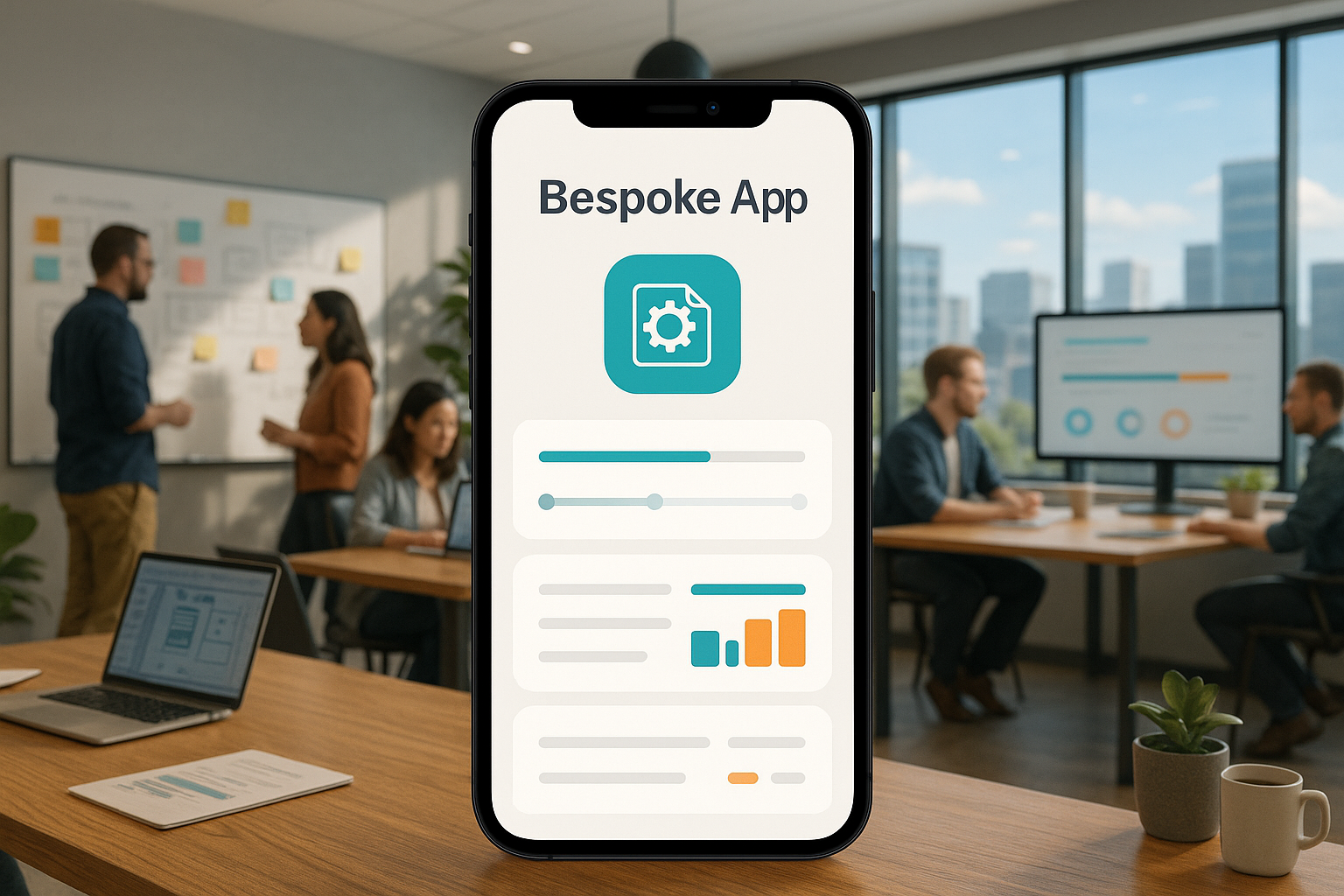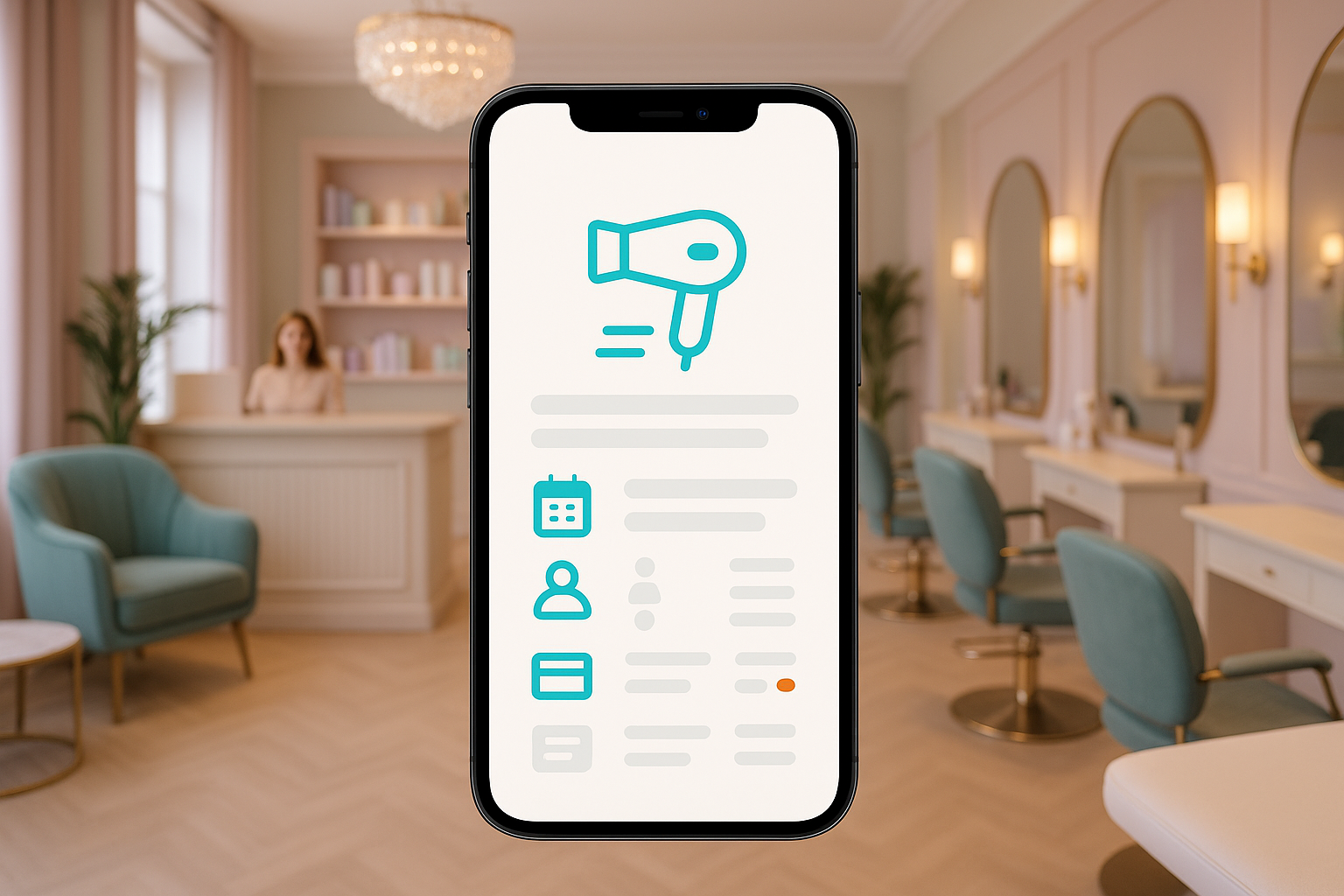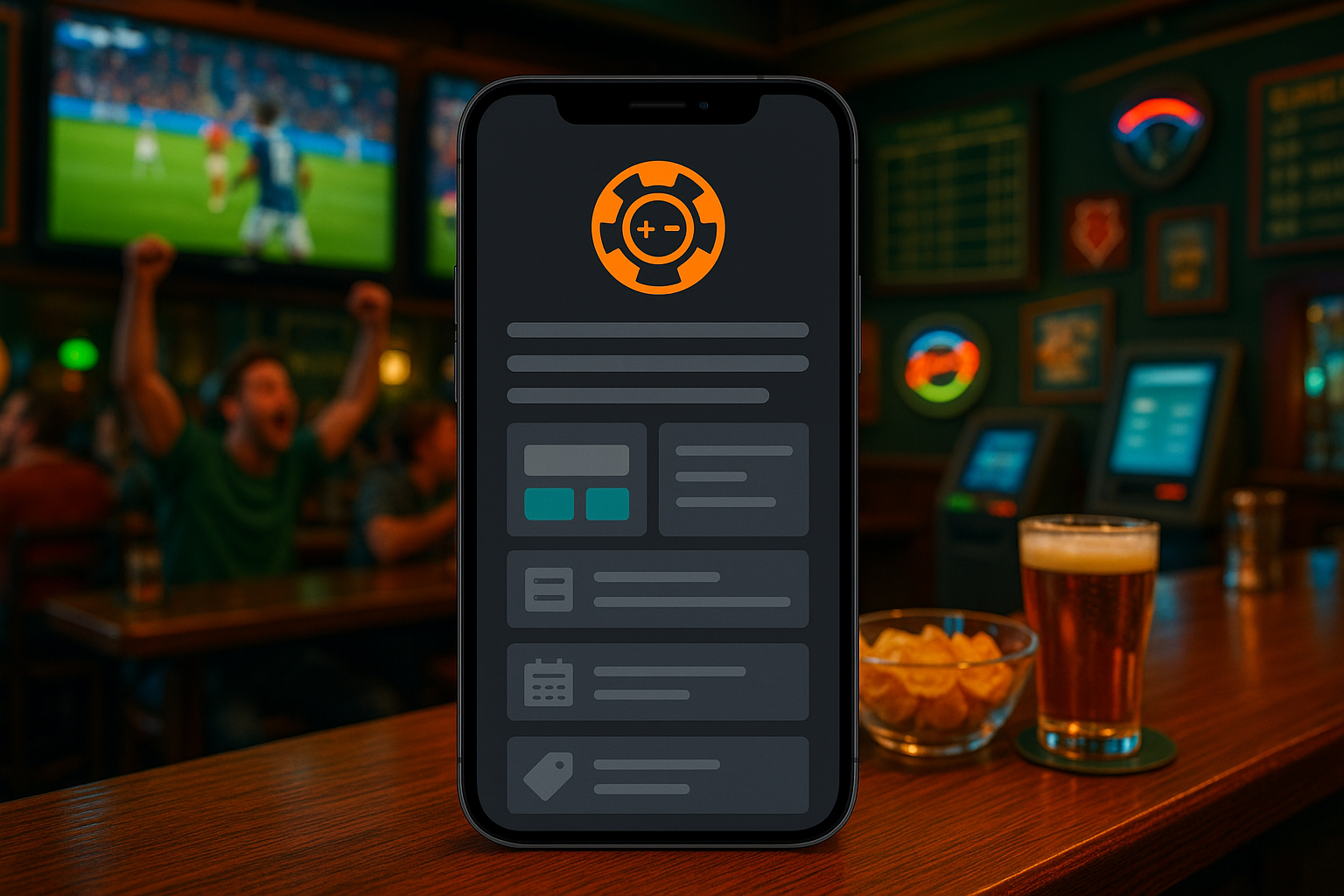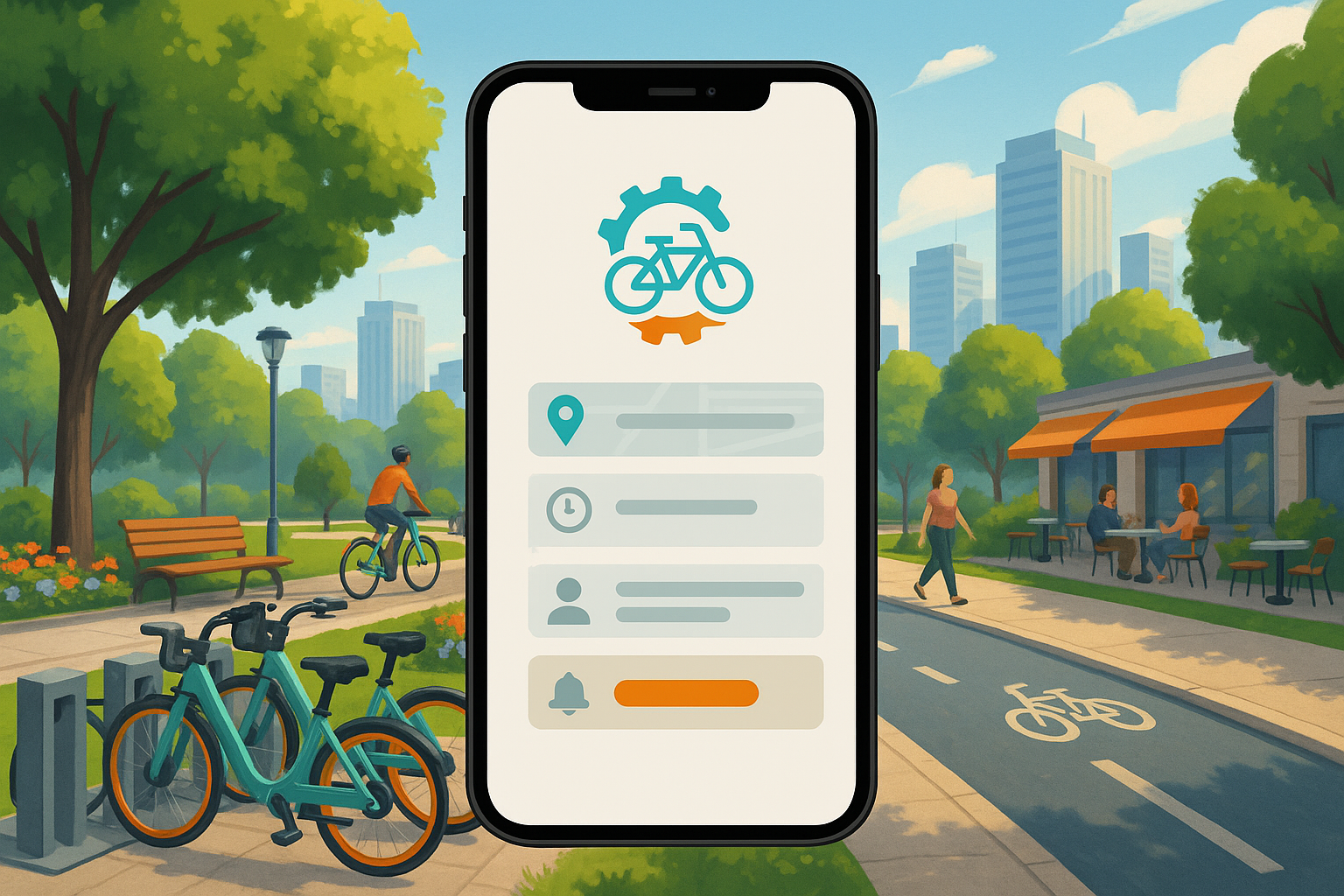In today’s digital world, a “one-size-fits-all” approach to software rarely leads to a competitive advantage. Businesses and users have increasingly complex demands, and generic, off-the-shelf software often fails to meet these specific needs. This gap has propelled bespoke app development from a trendy concept to a business necessity. Creating a custom application, however, is a formidable challenge, fraught with potential pitfalls like budget overruns, resource drain, and technical complexities that can derail a project before it ever gets off the ground.
Many organizations underestimate the expertise required to build a robust, scalable, and secure application. The journey from a great idea to a successful market launch is complex. This article will serve as your comprehensive guide to bespoke app development. We will explore what a bespoke app truly is, uncover the significant difficulties of attempting to build one in-house, detail the different types of custom applications, and provide a realistic estimate of the costs involved.
Furthermore, we will introduce you to the top companies that can turn your vision into a reality. As a leading AI-powered app development firm in the US, we at MetaCTO specialize in this very process. With over 20 years of experience, we’ve guided over 120 projects from concept to launch and beyond, helping our clients build, grow, and monetize their applications. We understand the challenges intimately and have a proven process to navigate them, ensuring your bespoke app is not just built, but built for success.
What is a Bespoke App?
A bespoke app—also known as custom software or tailored software—is a software solution created specifically for a single user or organization. Unlike commercial or “off-the-shelf” software, which is designed for the mass market with a general-purpose feature set, a bespoke application is made and tailored entirely to a user’s exact specifications. With bespoke software, what a company wants is precisely what it gets.
The fundamental difference lies in the design philosophy. Off-the-shelf software is built to appeal to as many people as possible, often resulting in a predicament for the user. A company might find itself paying for a plethora of features it will never use, or conversely, discovering that the software lacks critical functionalities needed to run its business operations effectively. This often forces businesses to adapt their established ways of working to fit the software’s limitations or purchase additional solutions to fill the gaps.
Bespoke software development is the direct alternative to this compromise. Because a bespoke solution is designed to meet a company’s precise needs, it can be developed to fit into current workflows, eliminating the need for disruptive changes to business processes. Every feature is tailor-made, which means the company will use 100% of the application’s functionality. This results in several key advantages:
- Maximum Efficiency: The software is built to optimize a company’s unique processes, automating repetitive tasks and reducing issues, which leads to less supervision and fewer errors.
- Competitive Differentiation: A bespoke app is the perfect solution for companies that want to set themselves apart from their competitors. It allows for the creation of unique applications and services that improve productivity, performance, and the customer experience.
- Scalability and Flexibility: A bespoke solution can be updated and expanded as the business grows and its needs evolve. Because the company owns the source code, the application is flexible, agile, and can be easily integrated with other bespoke or packaged software. Utilizing modern technology like the cloud also means bespoke solutions can be more scalable than the commercial software they are designed to replace.
- Seamless Integration: Bespoke software can be used to integrate data from a company’s current applications or to replace a legacy system entirely. This makes it easier to integrate information with the business model, providing better services and products to customers.
Ultimately, custom-made software helps a business stand out, grow, and meet its clients’ demands. The end result is a more fluid workflow, unique services, and better products that fit the demands of both the company and its customers.
Reasons It Is Difficult to Develop a Bespoke App In-House
While the benefits of a bespoke application are clear, the path to creating one is fraught with challenges, especially when undertaken by an in-house team. The perceived ease of software creation, fueled by the availability of development tools, often leads organizations to underestimate the complexity of building a robust, scalable, and secure solution. Here are the most significant difficulties of in-house development.
Financial Strain and Hidden Costs
One of the most common pitfalls of in-house development is exceeding the budget. The financial implications extend far beyond developer salaries. The total cost to hire a single software engineer in-house can reach as high as $248,000 for the first year. This figure accounts for a wide range of expenses:
- Recruitment Costs: With global tech talent shortages, recruitment costs are rising. Organizations spend an average of 5.4 months on technical recruitment alone.
- Salaries and Bonuses: Competitive salaries are just the starting point.
- Taxes and Benefits: Employer taxes (Social Security, Medicare) and comprehensive benefits packages add significant overhead.
- Ongoing Expenses: Costs for equipment, software licenses, office space or stipends, and continuous training are substantial and recurring.
In-house projects are also significant long-term financial commitments. A project can span years, requiring continuous investment. This exposes the company to risks like scope creep, where initial features become more complex and costly over time, and technology obsolescence, which can necessitate expensive overhauls.
Resource Drain and Diverted Focus
For companies whose core business is not software development, managing an in-house team can be a major distraction. The process of hiring, training, onboarding, and coordinating a development team is both costly and time-consuming. This diverts the attention of leadership from core business operations and strategic planning, potentially leading to a lack of agility and responsiveness in the market. This is a significant resource drain that can slow a company’s primary growth engine.
The Talent and Skills Gap
Creating high-quality, maintainable software requires deep expertise that is difficult to assemble and retain.
- Specialized Roles: Modern software development requires specialized roles like DevOps engineers and System Architects. Many companies either don’t realize the necessity of these roles or lack the ongoing need to justify hiring them full-time. Not having this expertise compromises project success, leading to poor infrastructure design, system failures, and higher rates of project failure.
- Keeping Pace with Technology: The tech landscape evolves at a breakneck pace. New tools and frameworks emerge almost daily, creating a ‘skills gap’ where an in-house team’s capabilities lag behind technological advancements. Keeping the team current requires a significant and continuous investment in training, which can be a burden on resources.
- Limited Exposure: In-house teams often have limited exposure to diverse projects and industry trends compared to specialized firms. This can lead to the use of outdated methodologies, compromised software quality, and a lack of fresh perspectives and innovative solutions.
Project Management and Quality Assurance Complexities
Even with a talented team, in-house projects often struggle with management and quality control.
- Scope Creep: This is a common issue that can derail project completion. It often occurs due to poorly defined criteria and unclear communication, leading to vague deliverables, missed deadlines, budget increases, and team burnout.
- Quality Assurance (QA) Bottlenecks: QA can become a significant bottleneck, especially with inexperienced teams. A lack of robust testing practices leads to frequent test failures, a high bug count, and extensive rework. This slows down the entire development process, delays milestones, and ultimately compromises product quality.
Technical Debt and Stagnation
Technical debt is the implied cost of rework caused by choosing an easy solution now instead of using a better approach that would take longer. Over time, this debt accumulates, making maintenance more complex and hindering future innovation. Signs of crippling technical debt include:
- Frequent and recurring bugs
- Slow development cycles due to constant bug fixing
- High maintenance costs and frequent emergency patches
- Difficulty onboarding new team members due to complex, poorly documented code
Partnering with a dedicated development agency like MetaCTO mitigates these risks. We provide a full team of experts with diverse, up-to-date skill sets, established processes for project management and QA, and a focus on building sustainable, high-quality software without diverting your attention from your core business. You can learn more about our custom mobile app development services here.
Different Types of Bespoke Apps
The term “bespoke app” covers a wide range of software solutions tailored to specific functions and industries. Because they are custom-built, they can be designed to serve almost any purpose a business requires. Here are some common examples of bespoke applications:
- Customer Relationship Management (CRM) Systems: While off-the-shelf CRMs exist, a bespoke CRM is built around a company’s unique sales pipeline, customer service workflows, and data tracking requirements.
- E-commerce Platforms: Giants like Amazon and eBay have developed their own bespoke e-commerce platforms to manage massive inventories, complex logistics, and personalized user experiences. A custom platform allows a business to control every aspect of the online shopping journey.
- Web Portals: These are secure web applications that provide a single point of access to information, such as a patient portal for a healthcare provider or a student portal for a university.
- Mobile Banking Apps: Banking mobile apps are a classic example of tailored software. They require high levels of security, integration with core banking systems, and a user-friendly interface for transactions, all specific to the financial institution.
- Bespoke Database Applications: These applications are designed to manage and manipulate specific data sets for a business, often replacing cumbersome spreadsheets with a streamlined, secure, and efficient system.
- Mobile Applications: Companies like Schnell Solutions Limited specialize in developing bespoke web and mobile software applications for a variety of purposes, from internal enterprise tools to customer-facing apps that enhance brand engagement.
Cost Estimate for Developing a Bespoke App
Determining the exact cost of a bespoke app without a detailed project scope is challenging, as the final price depends on numerous factors. However, based on industry data, we can provide a reliable range. The average cost to develop a bespoke app typically ranges from $80,000 to $250,000. At MetaCTO, we see basic MVPs land in the ballpark of $70,000 to $150,000, while more sophisticated solutions with cutting-edge components can cost $200,000 or more.
The total cost is influenced by the number and complexity of screens, platform choice (iOS, Android, or cross-platform), and the need for ongoing maintenance. The development process is typically broken down into several phases, each with its own associated cost.
| Phase | Description | Average Cost Range |
|---|---|---|
| Discovery | Involves preliminary market research, defining project goals, and creating a product roadmap. | $4,500 – $8,000 |
| Prototyping & Design | Creating wireframes, mockups, and a clickable prototype to visualize the app’s structure and user flow. | $15,000 – $30,000 |
| Development (Coding) | The most significant phase, accounting for 50-70% of the total cost. This is where the app is built. | $35,000 – $75,000 |
| Quality Assurance (QA) | Thorough testing to identify and fix bugs, ensuring the app is stable and functional. Accounts for 15-20% of the total price. | $8,000 – $18,000 |
| Deployment | Submitting the app to the Apple App Store and Google Play Store. | $2,000 – $4,000 |
Factors That Influence Cost
- Complex Features: Adding advanced features like AI/Machine Learning, GPS tracking, or IoT integrations will significantly increase development time and cost. For example, integrating with phone sensors may add around $2,100 per sensor, while a simple IoT integration could be around $9,000.
- Third-Party Integrations: Making the app work with services like social media via APIs can cost $4,000-$6,000 per integration.
- Platform Choice: Developing separate native apps for iOS and Android is more expensive than using a cross-platform framework. Tools like React Native or Flutter can trim development costs by 25-50% by allowing developers to write a single codebase for both platforms.
- Ongoing Maintenance: Don’t forget post-launch costs. Ongoing app maintenance, including updates, bug fixes, and server hosting, is typically estimated at around 25% of the original development cost per year.
Creating a prototype is a critical step to verify findings and keep the app’s cost structure under control. Making changes to a clickable prototype based on user feedback is far less expensive than rewriting code after development has begun.
Top Bespoke App Development Companies
Choosing the right development partner is the most critical decision you’ll make. A great partner mitigates the risks of in-house development and acts as a strategic guide to ensure your project’s success.
1. MetaCTO
At MetaCTO, we specialize in turning ambitious ideas into market-leading mobile apps. As a top-tier, US-based AI-powered development firm, we offer end-to-end services that cover every stage of the app lifecycle. With 20 years of experience, we’ve successfully launched over 120 projects and have helped our clients raise over $40 million in funding. Brands like Liverpool F.C., The Carlyle Group, and Slipknot trust us to deliver.
Our proven process is designed for speed, efficiency, and success:
- Validate: We can turn your idea into a rapid MVP in 90 days, allowing you to test the market, gather user feedback, and secure funding on a tight timeline.
- Build: We handle the entire design, build, and launch process, ensuring your app is market-ready and delivers a seamless user experience from day one.
- Grow & Monetize: After launch, we use A/B testing and analytics to optimize user onboarding, engagement, and retention. We also help you implement the most effective monetization strategies, from subscriptions to in-app purchases.
- Evolve: As your business scales, we ensure your app evolves with it, upgrading it with the latest technology like AI and computer vision to keep you competitive. Our work with clients like G-Sight, where we implemented cutting-edge computer vision AI, and Bond, where we integrated AI for personalized coaching, showcases our expertise in advanced tech.
We function as a true technical partner, offering everything from AI development to fractional CTO services to ensure your technology strategy aligns perfectly with your business goals.
Other Top Development Agencies
Here are other highly-rated companies in the bespoke app development space:
| Company Name | Focus/Specialization | Key Information/Tagline | Reviews/Votes |
|---|---|---|---|
| Designli | Mobile & Web App Development, UX/UI Design | Transforms Ideas into Top-Rated Software Solutions | 97 |
| Surf | Flutter & Native App Development | Flutter & Native App Development | 48 |
| VERVE LOGIC | Mobile App Development | Turning Vision Into Success Stories | 33 |
| NMG Technologies | Web & Mobile App Development | Proven Success in Building Multi-Million Dollar, NASDAQ-Listed Tech Products | 22 |
| Tekrevol | Digital Transformation Company | Digital Transformation Company | 21 |
| Mindinventory | Mobile App Development | Leading Mobile App Development Company | 15 |
| The NineHertz | Mobile App Development | Smart & Robust Mobile App Development | 15 |
| Slashdev.io | iOS & Android Development | Unrivaled Software Engineering & App Development | 8 |
| Apptunix | App Development | App Development Expert | 8 |
| 3 Sided Cube | Mobile App Development | Builds tech for good. | 1 |
| Intellectsoft | Custom Software, Mobile Apps, AI, Blockchain | A global tech solutions provider helping businesses stay competitive. | |
| ELEKS | Software Innovation | Technology Partner for Software Innovation and Market-leading Solutions | 3 |
| Trango Tech | Tech Services & App Development | Drives Change Through Technology | 2 |
| Orangesoft | Mobile App & Web Development | Builds mobile & web apps that people love. | 2 |
| App Maisters | Mobile App Development, Digital Solutions | A Trusted Digital Transformation Partner for Startups, Growing and Enterprise Companies | 3 |
Conclusion
Embarking on the journey of bespoke app development is a strategic move for any business looking to innovate, enhance efficiency, and create a distinct identity in a crowded marketplace. As we’ve explored, a custom-built application offers unparalleled advantages over off-the-shelf solutions by providing tailor-made functionality that aligns perfectly with your unique business processes and goals.
However, the path is not without its challenges. The complexities of in-house development—from spiraling financial costs and resource drain to the immense difficulty of acquiring and retaining specialized talent—can quickly turn a promising project into a significant burden. The costs, which can range from $80,000 to over $250,000, and the need for ongoing maintenance underscore the importance of getting it right from day one.
This is where a strategic partner becomes invaluable. By choosing an experienced and expert development company, you mitigate risks, gain access to a deep well of technical knowledge, and ensure your project stays on track and on budget. An expert team can navigate the entire lifecycle, from initial concept and validation to launch, growth, and long-term evolution.
If you are ready to build an application that not only meets your needs but also provides a significant competitive edge, the next step is to connect with a team that has the expertise to bring your vision to life.
Talk with a bespoke app development expert at MetaCTO today to discuss your project and build your app the right way, from day one.






